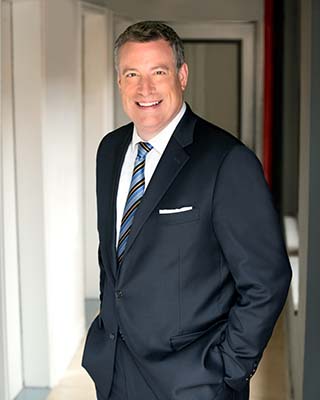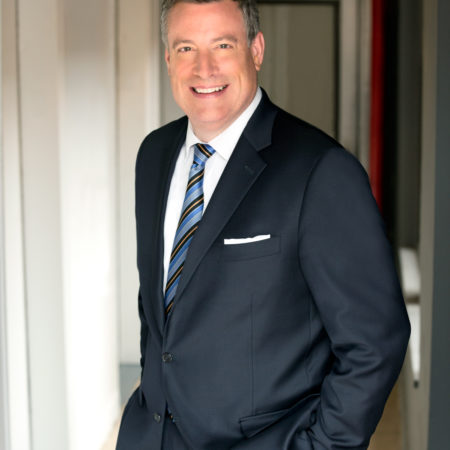Leadership coach Ken Jacobs recently sat down with Ketchum Chairman and CEO Rob Flaherty to discuss the challenge of leading leaders and leading across multinational offices.

Is leading respected leaders more challenging for you than leading team members?
I’m fortunate that there are so many respected leaders at Ketchum. They make my job a lot easier. Because we’ve worked together for years, my role is less about leading them and more about mutual respect — respect earned over time, through working together in both good and in challenging times. I try to be all in. If you’re not, then people can tell. At this stage in our careers, if you genuinely respect the people you work with, then you can do amazing things together.
Is there a secret to do this successfully?
It’s not a secret, really. When you’re fortunate enough to be surrounded by seriously strong talent, they need to know that you see what they are contributing, that you appreciate it, that it’s a meritocracy and that real contributions will lead to more career opportunity. That’s the way I expected to be treated and that’s the way I try to treat others.
How is leading across countries/cultures different from leading domestically?
More miles! Many of us worked very hard over decades to build Ketchum’s global network, which is now in 66 countries, including owned offices and affiliates. Now that it’s a global company, we have to lead that global company, and so you have to show up. I find a virtual presence via webcam and video only works if people have met you and you’ve been there in-market with them at some point.
What faux pas have you made?
When I was younger, I’m sure I was a stereotypical American — perhaps talking too much and too fast, a little too confident, and not having enough listening and respect for the different styles that are prevalent in each country. Since then, I’ve had 30 years of experience and have tried to be a student of different cultures, styles and expectations.
You’re following in the footsteps of Ray Kotcher, Dave Drobis and Paul Alvarez as Ketchum chairman. Is that ever frightening?
It’s a tremendous honor to follow in their footsteps. Ketchum made so much progress under their leadership. So, yes, it can be intimidating to carry the torch after their decades of success. At the same time, because of their great leadership, I inherited a company in great shape. It’s a good hand to be dealt, and that gives me confidence as we take the company into the future.
I also learned a lot from knowing and working with them for years. It makes me think about what I admire and seek to emulate from others. Here are a few of the traits I value: people who keep things in perspective, lower the temperature in crisis situations, recover fast, laugh easily, are never the victim, are generous, fuel energy rather than deplete [it] and who listen — and people who know that listening is not the act of waiting to talk.
What’s the best piece of advice that you can give to someone who wants to make the jump from manager to leader?
It’s not about you. Your success will be determined by how much you can rally other people to the cause. Before you become a leader, you focus on developing yourself; when you become a leader, you focus on developing others. I believe that advice was from Jack Welch, former CEO of GE, and I heard it at a leadership conference years ago. Perhaps it should be said this way: “You only become a leader when you start focusing on developing others more than yourself (click to tweet).” It’s a reminder to make this about others as often as possible.
What should communications leaders do to be effective in a profession that is radically different from the one in which they came up through the ranks?
Our profession has changed more in the last five to seven years than in the previous 50. Consequently, while those of us with decades of experience offer judgment, strategic thinking and perspective, I think it’s true to say that people under the age of 35 know more than those over 35 about how people connect, share and form opinion.
So that requires a few things:
- We need to have an appreciation that, more than ever, great ideas can come from all levels, not just the mid-level and senior people.
- Learning needs to be social, not expert-centric. Rather than just classes or webinars led by senior people, we engage all of our people in online learning, in which everyone’s ideas are posted, seen and voted on by their classmates. This allows the 45-year-olds to learn from the 25-year-olds and vice versa.
- Everyone must engage in continuing education. The medical field has “CMEs,” or continuing medical education courses, because we don’t want our doctors relying on what they learned in medical school 25 years ago. Where’s the requirement to be up on the latest techniques and platforms in our profession? Almost everything has changed, so everyone needs a major dose of continuing education.
A version of this article can be found on PRSA’s website.
